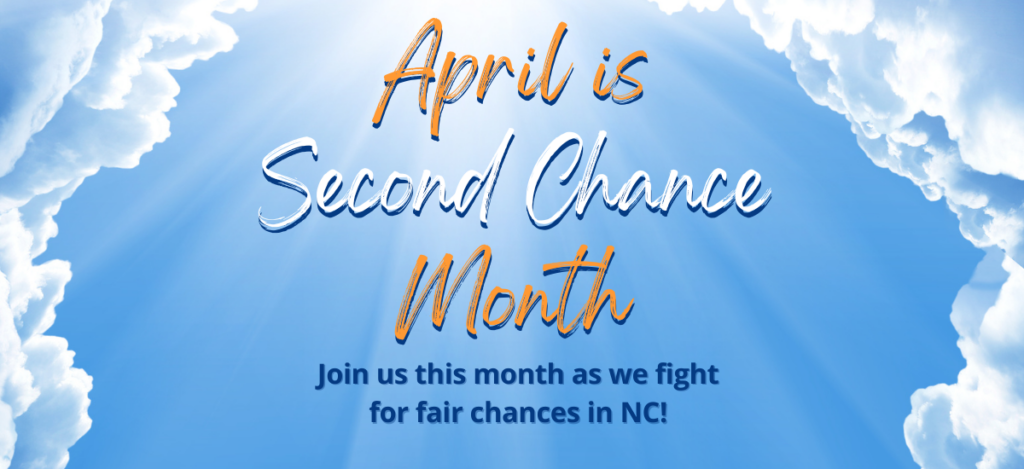April is Second Chance Month, a time dedicated to recognizing the collateral consequences of a criminal record and advancing efforts that promote fairness and access to opportunity for people who have been directly impacted by the criminal legal system.
This year, during North Carolina’s 2025 legislative session, our project will be actively advocating for four Second Chance bills. These bills address crucial issues like debt-based driver’s license suspensions, the unregulated use of mugshots, and the automatic expungement of certain criminal charges.
Here’s a brief overview of the bills we’ll be focusing on, please follow the links to contact your lawmaker and show your support:
Debt-Based Driver’s License Suspensions: House Bill 980
Food Access: Senate Bill 564 and House Bill 682
North Carolina should ensure access to food and cash assistance for people reentering society from our criminal legal system. In 1996, the federal government passed a law that bans people with a felony drug conviction from receiving food stamps (Supplemental Nutrition Assistance Program or “SNAP”) and cash assistance programs (Temporary Assistance for Needy Families or “TANF”). SB564 and HB682 makes a person with a felony drug conviction immediately eligible for SNAP and TANF benefits after their conviction date or upon release from incarceration. The bill also requires a person to successfully complete successfully completed a drug treatment program or be continuously and actively participating in a required drug treatment program to qualify for SNAP and TANF. Currently, people convicted of certain Class H or I drug felonies must wait six months and complete substance use treatment before becoming eligible for benefits.
Mugshots: Senate Bill 129 and House Bill 446
Mugshots, once a routine aspect of law enforcement, have now become a tool for exploitation and injustice. These images are being misused by unscrupulous companies for financial gain at the expense of people’s reputations and livelihoods. We believe it’s time to put an end to this practice and ensure a fair and just approach to the dissemination of booking photos. Under the current North Carolina law, booking photos are treated as public records, meaning they can be accessed, used, and manipulated by anyone, including private companies with questionable motives. House Bill 446 Prohibition on Disclosing Booking Photographs: This bill will prevent law enforcement agencies from openly disseminating booking information to third-party companies. The bill allows law enforcement agencies to post booking information on their websites and apps. The bill sets penalties for third-party booking companies that do not remove and destroy booking information after receiving notice that the underlying charge was dismissed, ended in a not guilty, or was expunged. Senate Bill 129 Booking Photograph Privacy Act: This bi-partisan bill will clarify that booking photographs are not public records to be openly published, distributed, or released to the public. The bill allows for booking photos to be published for criminal investigations related to a missing person or when the court finds it necessary to fulfill immediate law enforcement needs.
 Justice Circle
Justice Circle 